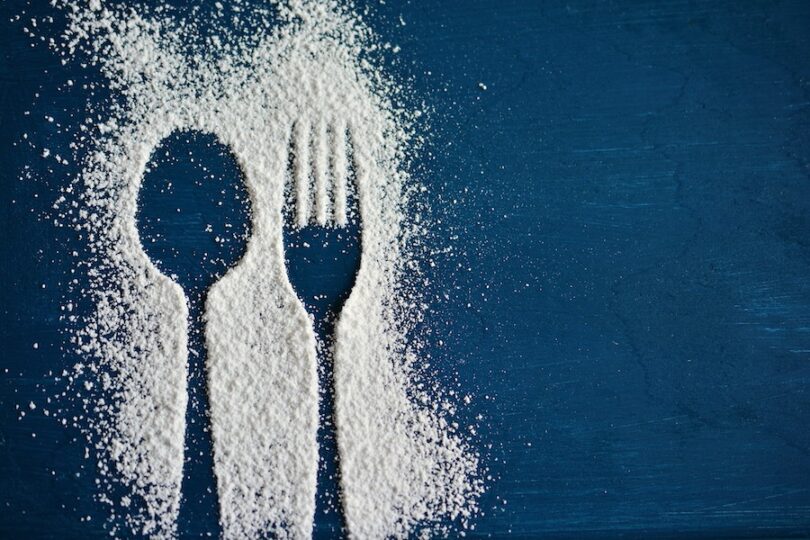You’ve probably heard that cutting out refined sugar is good for you. But you may not know that it can actually help prevent illnesses like diabetes, heart disease, and tooth decay. And yes, there are still things to eat with no refined sugar in them! In this article we’ll show you how eating less sugar can benefit your health and what alternatives there are if you’re craving something sweet.
No more cravings.
The first benefit of ditching refined sugar is the ability to control your cravings. Sugar is addictive, and those cravings can be a sign that your body needs something else. Luckily, there are plenty of ways to satisfy those cravings without giving in to refined sugar!
Keeps you fuller for longer.
Sugar can make you feel hungry again soon after eating, causing you to crave more sugar. This cycle is known as “blood sugar spikes and crashes.” Sugar also causes the body to secrete insulin, which tells your cells to absorb glucose from the blood stream. The hormone also triggers hunger signals in the brain–as a result, people who eat foods high in refined carbohydrates tend to overeat while they’re feeling satisfied (1).
As an alternative, try healthier carbs like whole grains or vegetables that are packed with fiber: these keep you fuller for longer without causing big spikes in blood sugar levels (2).
Helps with weight loss.
Sugar is addictive. It can lead to cravings and overeating, which in turn can cause weight gain. Sugar also increases your appetite, so if you’re eating it before a meal or as an afternoon snack, then it’s likely that these calories will be stored as fat rather than burned off for energy (1).
The empty calories in processed sugars are unnecessary for your body and have no nutritional value whatsoever–they don’t provide any vitamins or minerals like natural sugars do (2). When refined sugars enter the bloodstream quickly through frequent consumption of high-glycemic foods like desserts or sodas, they spike blood sugar levels quickly followed by crashes that make us feel tired and hungry again soon after eating them (3). This cycle leads to insulin resistance over time–which means that our bodies become less able to respond appropriately when we eat something sugary (4).
Helps prevent diabetes and heart disease.
Sugar can be a major contributor to heart disease. According to the American Heart Association, consuming too much sugar (primarily from added sugars) increases risk for diabetes, weight gain and tooth decay. Additionally, excess sugar consumption may increase your blood pressure levels as well as cause inflammation in your arteries that leads to heart attacks and strokes.
Prevents tooth decay.
The acidity of sugar can erode the enamel on your teeth, which is the hardest part of your teeth. The enamel protects them from decay. If you don’t have any cavities or other damage in your mouth, this is what keeps you from getting a cavity in that spot.
Sugar causes tooth decay when it gets stuck in between your teeth and forms plaque (also known as dental plaque). This plaque then turns into tartar–a sticky substance that adheres to the surface of your tooth or gum line–and starts eating away at them over time. This process causes pain and infection if left untreated!
Alternatives: Honey, Agave, Monk Fruit Sweetener, stevia
- Honey: Honey is a natural sweetener that has been around for thousands of years. It’s made by bees, and it contains antioxidants like vitamin C and E. It’s also a good source of potassium and iron. It’s often used as a natural remedy for colds, coughs and allergies because it has anti-inflammatory properties that help soothe the respiratory system when used in tea or taken internally. It has a low glycemic index, which means it doesn’t raise blood sugar levels quickly. It also has antibacterial properties and can help fight off infections in your body.
- Agave: Agave syrup is also known as “nectar” because it comes from the same plant that produces tequila–the agave cactus. Like honey, it contains antioxidants. The syrup is made from the sap of the agave plant, which is heated and filtered to remove impurities. It contains manganese, magnesium and iron. The natural sweetener also has a low glycemic index, meaning it won’t cause spikes in blood sugar levels. It’s also a good source of fiber, which helps keep your digestive tract regular. Agave syrup contains vitamins B1, B2 and B3, as well as calcium and phosphorus.
- Monk Fruit: Monk fruit is a sweetener that comes from a small, round fruit in Asia. It’s been used for centuries to make medicine. Today, it’s also used as a low-calorie sweetener and has no effect on blood sugar levels. Stevia: Stevia is another natural sweetener that comes from the stevia plant. It contains zero calories and doesn’t affect blood sugar levels either! It’s also naturally sweet but doesn’t have an effect on blood sugar levels. It’s often used in place of high-sugar treats and drinks like soda.
- Monk Fruit Sweetener: This is derived from monk fruit (also known as longevity fruit), which grows in Southeast Asia and South America. It contains no calories or sugar but has been shown to increase insulin sensitivity in people with type 2 diabetes when consumed daily over six weeks.* Stevia: Stevia is a natural sweetener derived from the leaves of the stevia plant. It contains no calories and has been shown to help with weight loss and blood sugar control when used in place of sugar.
- Stevia: Stevia has been used by indigenous peoples for centuries because of its sweet taste without any calories or carbs! Stevia is a great option for people with diabetes. It has been shown to lower blood sugar and HbA1c levels in people with type 2 diabetes when consumed daily over six weeks.* In addition, stevia also may help improve insulin sensitivity in healthy people.
Surprisingly, it’s not so hard to get used to eating no refined sugar!
Surprisingly, it’s not so hard to get used to eating no refined sugar!
- You’ll lose weight. This is especially true if you’re eating a lot of processed foods that are full of refined sugars.
- You’ll prevent diabetes and heart disease. Studies show that consuming too much added sugar can raise blood pressure, which increases your risk for stroke and heart disease over time. In fact, the American Heart Association recommends limiting added sugars to no more than 100 calories per day (about 6 teaspoons). That’s less than half a can of soda!
- Your teeth will thank you later! The acidity in sugary foods causes tooth decay by breaking down enamel–the protective outer layer of our teeth–and making them easier targets for bacteria growth (which leads directly to cavities). Alternatives: honey, agave nectar or syrup made from cactus flowers; monk fruit sweetener; stevia leaf extract powder
I hope you’ve enjoyed reading about the many benefits of eating no refined sugar. As I mentioned at the beginning of this post, it’s not always easy to make the transition from a sugary diet to one without refined sugars, but there are so many delicious alternatives out there that you’ll soon find yourself in love with your new lifestyle!



Leave a Reply